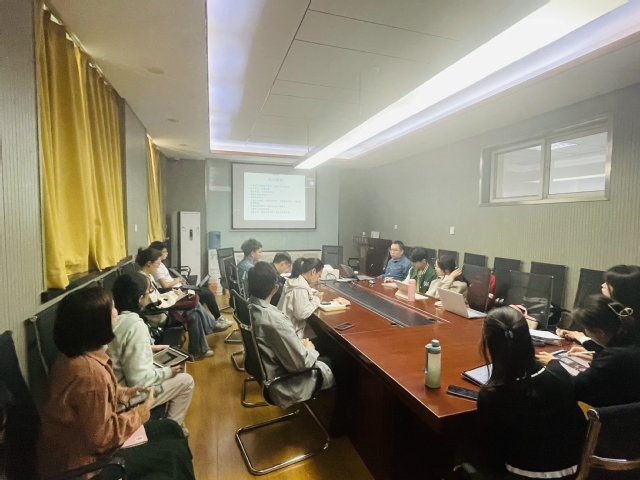
On October 6, “An Appointment with Tutors”, sponsored by the Graduate Department of the Party Committee and undertaken by the Academic Department of the Graduate Union of the College of Foreign Languages, was held online and offline simultaneously. Zhang Qiang, vice professor of the Translation Department of the College of Foreign Languages, was invited to give a special lecture entitled “A Survey of the Perspective and Writing Methods of Comparative Literature Research”. The participating postgraduates and doctoral students conducted in-depth discussions around the theme.
In the lecture, Prof. Zhang Qiang first introduced the concept and discipline history of comparative literature, including an overview of its background, and proposed questions like “What is comparative literature? What are the perspectives of comparative literature?” He then further explained the different definitions of comparative literature by various scholars and guides students to think critically. He emphatically introduced the mechanism and research direction of “comparison”. For example, German style, French style and North American style comparative literature have their own distinctive characteristics. Chinese scholars represented by Lu Xun, Qian Zhongshu and Zhu Guangqian have also put profound historical practice in the construction of comparative literature.
Taking Bassnett’s Comparative Literature: A Critical Introduction as an example, Prof. Zhang Qiang elaborated the development trend and research scope of comparative literature from western centralism to cosmopolitanism. Starting with specific examples, he introduced the basic methods and ideas of academic writing, and put forward several practical suggestions for students to write papers in the field.
After the lecture, Prof. Zhang Qiang patiently answered the questions raised by the students and encouraged them to have logical training in their long-term reading and writing practice. Students attending the seminar said that the seminar would help them deeply understand the interdisciplinary and cross-cultural nature of comparative literature writing, which benefit a lot.



